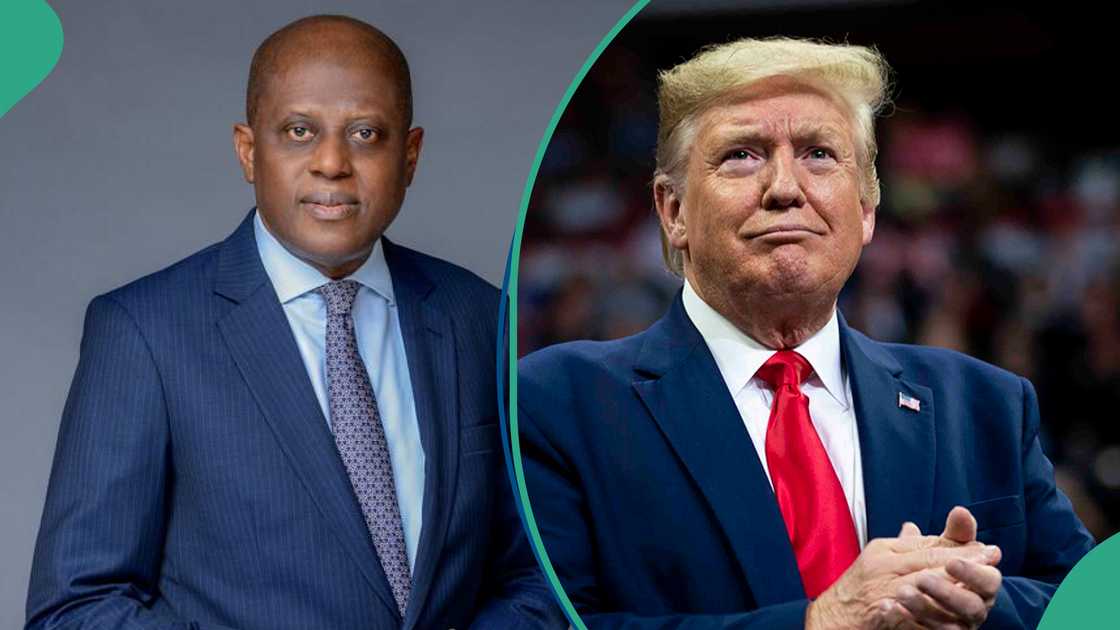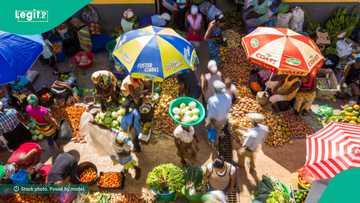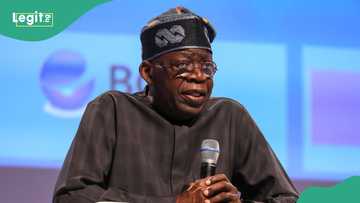CBN Warns of Donald Trump's Reciprocal Tariffs as Nigeria’s Foreign Investment Hit 2-Year High
- The Nigerian economy saw a jump in foreign investments that was the highest in at least two years
- This is owing to favorable returns and the CBN's large rate hikes aimed at attracting capital
- Inflows reached $1.57 billion in December 2024, a 32.12% increase over the previous month
Legit.ng journalist Zainab Iwayemi has 5-year-experience covering the Economy, Technology, and Capital Market.
Due to favorable returns and the Central Bank of Nigeria's (CBN) big rate hikes aimed at attracting capital, foreign investments in the Nigerian economy surged to their greatest level in at least two years.

Source: UGC
In just one year, capital inflows into the economy increased by 524.24 percent, from $0.33 billion in January 2024 to $2.06 billion in the same month in 2025.
In December 2024, inflows totalled $1.57 billion, a 32.12% increase from the previous month, BusinessDay reported.
The CBN said in its monthly ‘Economic Report’ for January stated,

Read also
Top Nigerian food Items with high food prices in March as inflation rises to 24.23 per cent
“Capital inflow increased due to favourable returns in the domestic financial market,”
However, as investors' desire for a long-term stay was slowed by the macroeconomic environment's uncertainties, infrastructure deficiencies, and ongoing security issues, foreign direct investment (FDI) fell from $0.12 billion in December 2024 to $0.07 billion.
Additionally, "other investments," primarily loans, dropped from $0.22 billion to $0.14 billion in the previous month.
“In terms of share, portfolio investment inflow constituted 89.60 percent, while ‘other investment’ and direct investment accounted for 7.01 and 3.39 per cent, respectively.”
According to Investopedia, portfolio investors purchase and oversee a variety of financial assets, including stocks, bonds, and other securities. High yields, returns, or sentiments sparked by significant announcements are the primary motivators for portfolio investors.
According to the National Bureau of Statistics (NBS), foreign investments in the Nigerian stock market totaled $150 million in the second quarter of 2024 (Q2 2024), up 204 percent from $49.4 million in the first quarter (Q1).
In September 2024, they hit $284 million for the first nine months of 2024, which was their greatest level since COVID. Compared to $239.2 million during the same period in 2023, this represented a 19% year-over-year increase.
Trade tariff impact
But the CBN warned that President Donald Trump's "reciprocal tariffs" might undo these benefits as investors run for cover to avoid being hurt by the levies' knock-on effects, particularly in developing nations like Nigeria.
“There has been a partial reversal of foreign flows given the volatility in oil prices. This said, investors continue to acknowledge key fiscal and monetary reforms which have put the sovereign on a better footing,” said Samuel Sule, chief executive officer of Lagos-based Renaissance Capital Africa.
Since taking office almost 18 months ago, the CBN, led by Olayemi Cardoso, has adhered to an orthodox monetary policy. In a significant step to curb increasing prices and permit capital inflows into Africa's most populous country, benchmark interest rates have been raised by a total of 875 basis points to 27.5%
FPI inflows increased as investors placed bets on Nigeria as a result of these big rate hikes.

Source: Getty Images
Banking share leads
According to a sectoral analysis, the banking industry received the most foreign capital, making up 45.22 percent of all inflows. This was followed by the financing sector’s 44.32 percent, telecommunication’s 3.86 percent, production and manufacturing sector’s 3.01 percent, shares’ 1.57 per cent, and trade’s 1.43 percent. The balance came from other sectors.
The UK was the largest source of capital, making up 65.65% of the total, according to capital inflows by the country of origin. The United States came next with 8.15 percent, followed by the Republic of South Africa with 7.66 percent, the United Arab Emirates with 7.18 percent, Mauritius with 2.87 percent, and Belgium with 2.28 percent.
With a share of 62.88 percent of all inflows, the Federal Capital Territory (FCT) was the largest beneficiary, according to the inflows by destination. Lagos, at 36.59 percent, Ogun, at 0.04 percent, and Kano, at 0.01 percent, came next. The balance came from other locations.

Read also
American credit rating Firm, Fitch, predicts Nigeria’s debt servicing to hit $5.2 billion in 2025
CBN data shows foreign exchange inflow in Q3 2024
Legit.ng reported that the net FX inflow to the Nigerian economy in Q3 of 2024 declined by 2.97% to $14.46 billion from $14.89 billion in the preceding quarter.
The development is according to CBN’s data released on Friday, December 19, 2024.
Every quarter, net forex exchange declined by 2.97% in the third quarter, but relative to the same period in 2023, net FX inflow declined by 75.91%, from $8.22 billion to $14.46 billion.
PAY ATTENTION: Сheck out news that is picked exactly for YOU ➡️ find the “Recommended for you” block on the home page and enjoy!
Source: Legit.ng




